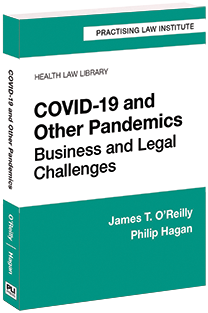Directors’ and Officers’ Liability is a vital treatise for corporate counsel, private practitioners, and directors and officers which provides a straightforward explanation of the obligations of directors and officers of public companies, the penalties they face if they fail to meet their obligations, and the protections that are offered them under the law or by agreement.
The book covers the key facets of board committees; the duties of directors and officers under state corporate law and federal and state securities laws; private civil actions and public enforcement; exculpation, indemnity, and insurance; cybersecurity; contested mergers and acquisitions; Securities Act suits filed in state court; special issues in pharma and biotech; and more.
Highlights of the new release include:
- Gender and Ethnic Diversity of Boards. State legislatures, courts, proxy advisory firms, and stock exchanges have all recently weighed in on requiring boards to maintain certain levels of diversity. See §§ 1:10 and 2:3.3[C] for discussion of the latest developments.
- Caremark Claims. Hughes v. Hu and Teamsters Local 443 Health Services & Insurance Plan v. John G. Chou are the latest in a string of recent decisions from the Delaware Court of Chancery interpreting and applying Caremark. See §§ 3:3.14, 8:8.3, and 8:8.4 for detailed analysis.
Order a print copy today.
PLI PLUS subscribers can access this title through their subscription.
